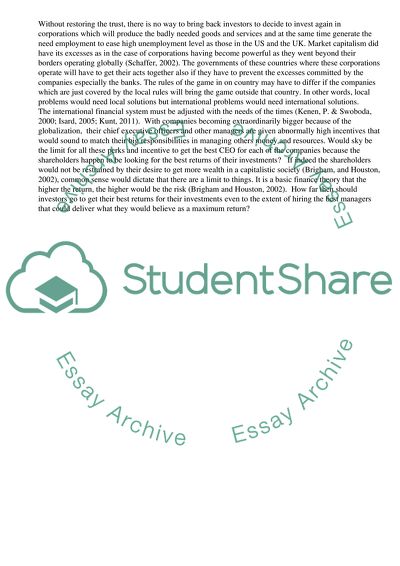Cite this document
(How to Lose and Restore Confidence in Business Research Paper, n.d.)
How to Lose and Restore Confidence in Business Research Paper. Retrieved from https://studentshare.org/business/1758656-financial-crisis-and-the-dilemma-of-business-ethics
How to Lose and Restore Confidence in Business Research Paper. Retrieved from https://studentshare.org/business/1758656-financial-crisis-and-the-dilemma-of-business-ethics
(How to Lose and Restore Confidence in Business Research Paper)
How to Lose and Restore Confidence in Business Research Paper. https://studentshare.org/business/1758656-financial-crisis-and-the-dilemma-of-business-ethics.
How to Lose and Restore Confidence in Business Research Paper. https://studentshare.org/business/1758656-financial-crisis-and-the-dilemma-of-business-ethics.
“How to Lose and Restore Confidence in Business Research Paper”, n.d. https://studentshare.org/business/1758656-financial-crisis-and-the-dilemma-of-business-ethics.


